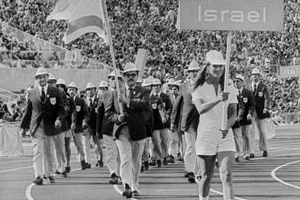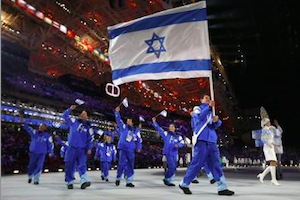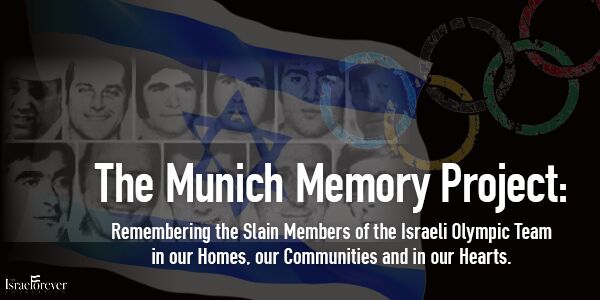War: Effects, Memories and Questions
By Herbert Weinberg
I have not practiced war; however as an Olympic scholar, I have seen its effects as in the following two instances:
My nephew Rich and I had gone to the 1972 Olympic Games in Munich, Germany to see the glory and the heights to see which the human body could attain on the fields of athletic competition. We are Jews and felt the concomitant obligation to go to Dachau, a suburb of Munich, where to the contrary we could also contemplate the depths of darkness in mankind’s soul. For Dachau is the location of one of Adolph Hitler’s concentration camps: the site Germany maintains as a remnant and reminder of the Second World War.
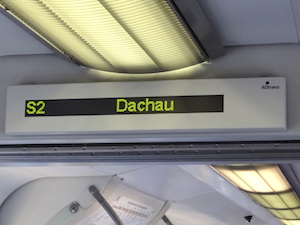
We asked directions and found ourselves on a train platform waiting for transportation. And I recall the chill created within me as the train came suddenly round the bend with huge letters on its forehead: "D-A-C-H-A-U” as I realized that the other Jews on other days were loaded onto other trains headed for this same destination and death.
At that hardscrabble camp we walked into the grim barracks, saw the horrid crematoria and the testimonial memorials placed there by Jews and non-Jews.
In the midst of such sadness, however there was a gentle mitigating element as we noticed fading long-stemmed roses placed on the ovens and also upon the planks that served as harsh beds within the barracks. Upon inquiring we learned the Israeli Olympic team had been there the previous day whose athletes and coaches laid these sensitive reminders.
Less than one week later, back at the Olympic site, before dawn, armed Arab terrorists invaded the Israeli team’s section of the Olympic Village, murdered a coach and an athlete and took nine others as hostages. The drama was played out the next day, in the black of night at the local Furstenfeldsbruck Airport where the terrorists plan to fly their hostages to Egypt failed. Frustrated during the firefight they murdered their nine bound Israeli prisoners.
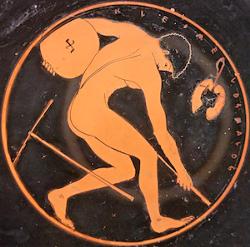
Centuries ago, during the ancient Olympic Games it was traditional for warring armies to lay down their arms within an Olympic Truce so that warriors could go to the Games to compete in peace. In its way that tradition still exists as we see at each Olympic athletes from nations that are hostile toward one another sitting together and conversing at Olympic Village lunch tables. Though they are competitors they do not talk of the brutishness of their politics so much as they discuss the strategies of their sport. No animosity; just the language of sport; all in the Olympic spirit; in antithesis to their generals who study and practice war.
Of course terrorists by definition do not understand this peaceful proposition and the hands of eleven Israeli Olympians who came to Munich to clench barbells, epees, javelins and basketballs, now lay unclenched in death.
The same hands that laid those beautiful roses upon the ovens.
It was a medley of color and music: an exposition of joy, a raptous, inspirational, international celebration of youth. Masses of teenagers bounced and danced into a series of designs set off by the multi-colors of their ski uniforms upon the vast municipal soccer field in Sarajevo, Yugoslavia. These were the joyous Opening Ceremonies of the 1984 Olympic Winter Games.
The Olympic Torch was lit, national flags were raised and pledges were made to compete on snow and ice honestly and fairly. This was love, this was friendship, this was the nations of the world coming together to compete in the midst of the Carpathian Mountains for peaceful games and competition.
Finally the extravaganza ended and fortune found me within the section that was next to the stadium exit by which the performing youngsters left the field. As they looked at us one of them had the friendly and cute idea to toss a silver glove into our midst. Then another did the same- this time a purple glove. The next threw a colorful headband and the next a hat and soon there was a small rain of these decorative objects from the host of performers and we gathered them in as souvenirs. And to this day they are my favorite memorable souvenirs although I smile when I see the two gloves I gathered up are both left-handed.
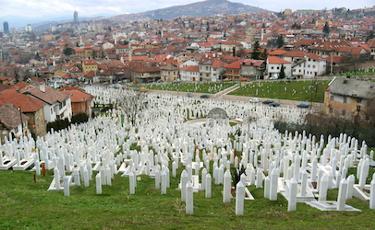
Now shift to almost a decade later as certain societies and nations of Eastern Europe were dissolving, mostly in peace. However within the union that was Yugoslavia it became years of holocaust fueled by once dormant ethnic hatreds. There was mass murder as varying ethnic districts within Yugoslavia sought independence. Bosnia and Herzegovina, whose capital was Sarajevo, declared independence and the city was surrounded and placed under siege by Serbian nationalists. They went for each other’s throats with a terrible vengeance, even among neighbors who once lived together in peace. Sarajevo became a battleground, a city of bombardment and siege. The Olympic venues: the skating rinks, the ski jumps, all the Olympic structures lay in ruins.
And as the siege became one of the longest in history ironically the only remaining space to bury the dead was the soccer field that had held those glorious Opening Ceremonies. Thereby the field became a patchwork of crowded and uneven rows of crosses. I’ve seen the 1994 photographs of that field as a cemetery in contrast to the 1984 memories and images I have of the children that danced there that day.
Have those bodies been removed? Do children play there again?
If not I often wonder if any of those who gave me my lovely souvenirs lay resting there?
Herbert Weinberg, a native of Philadelphia who now lives in Colorado, covered 14 Olympic Games, primarily for ABC Radio Sports.

